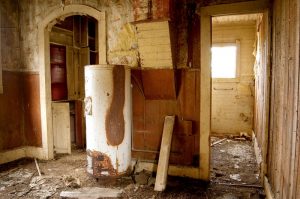 When water meets metal, there’s a chance for rust to start. Although water heaters are in danger of corroding, they’re manufactured to resist rust for many years. If you keep up with regular maintenance for your home’s water heater, as well as calling for water heater repair in Fresno, CA when needed, you probably won’t encounter signs of rust until the system is into its second decade.
When water meets metal, there’s a chance for rust to start. Although water heaters are in danger of corroding, they’re manufactured to resist rust for many years. If you keep up with regular maintenance for your home’s water heater, as well as calling for water heater repair in Fresno, CA when needed, you probably won’t encounter signs of rust until the system is into its second decade.
But rust can happen. The conventional wisdom about rust on a water heater is it means the time has come to replace the unit. Is this always the case? Let’s look a bit deeper.
The Sacrificial Anode Rod and How Your Water Heater Keeps Away Rust
There are several designs in a tank water heater to help it avoid rust, such as airtight sealing to keep out the oxygen necessary for rust to begin and glass interiors in tanks. The most important defense is the sacrificial anode rod that runs through the center of the tank. There’s a complex scientific explanation for how the anode rod works. The simple explanation is that the rod is designed to rust so the rest of the tank doesn’t. It “sacrifices” itself to the oxidizing that creates corrosion.
The rod will stop doing this job when it rusts through completely, which is one of the reasons regular professional maintenance is so vital. Water heater experts will check the anode rod during maintenance and change it for a new one if it’s rusted through.
When Rust Appears Anyway …
Where are you noticing rust? This can give you an idea of how serious the problem is:
- In the hot water: A rusty discoloration coming from hot water taps doesn’t necessarily mean the water tank is the source—but there’s a strong chance it is. The discoloration could be a sediment buildup in the tank, in which case a technician can fix the problem with a tank flush. If the discoloration is rust, then it means the tank is rusting from the inside, and this usually means the water heater is finished and needs to be replaced.
- Along the heat exchanger: Rust along the bottom of the water heater may be rust developing on the heat exchanger because of a reaction between the combustion gas and the metal of the exchanger. A technician can repair this with a heat exchanger replacement. Don’t delay with this service, since a rusted heat exchanger can crack and start allowing toxic gases to escape.
- On the top of the tank: This might be due to a leaking connection allowing water to drip onto the tank. You’ll need the leak fixed, and a technician may also be able to take care of the rust that has already occurred, as long as it hasn’t gone too far.
- Along the tank: Rust on the tank itself is a bad sign—and it usually means the tank and likely the entire water heater needs to be replaced. If the water heater is over 20 years old, it’s already a good time to replace it.
Call Purl’s Sheet Metal & Air Conditioning to schedule water heater repair or replacement. “Quality Is the Cornerstone of Our Success” since 1952.

